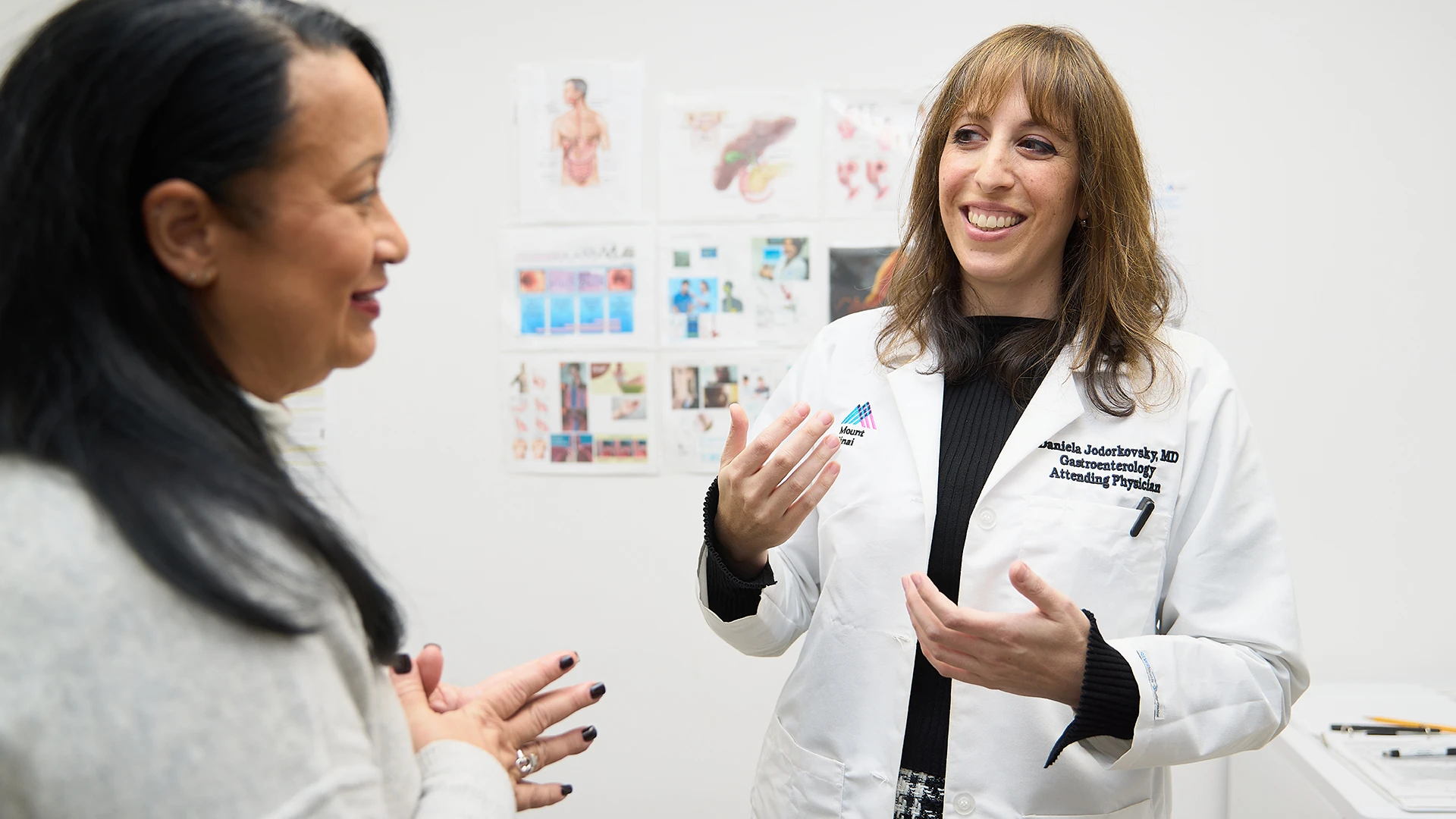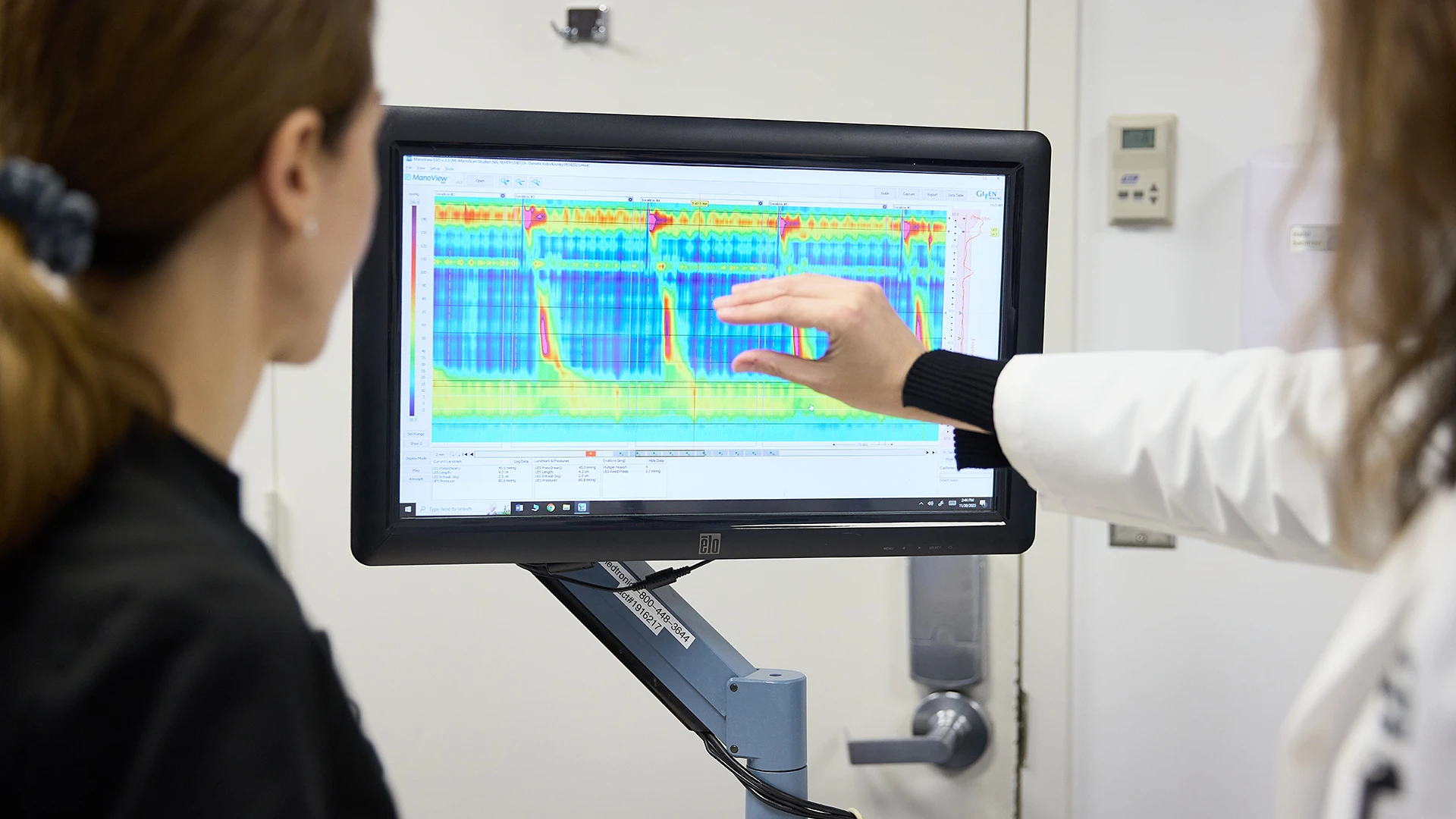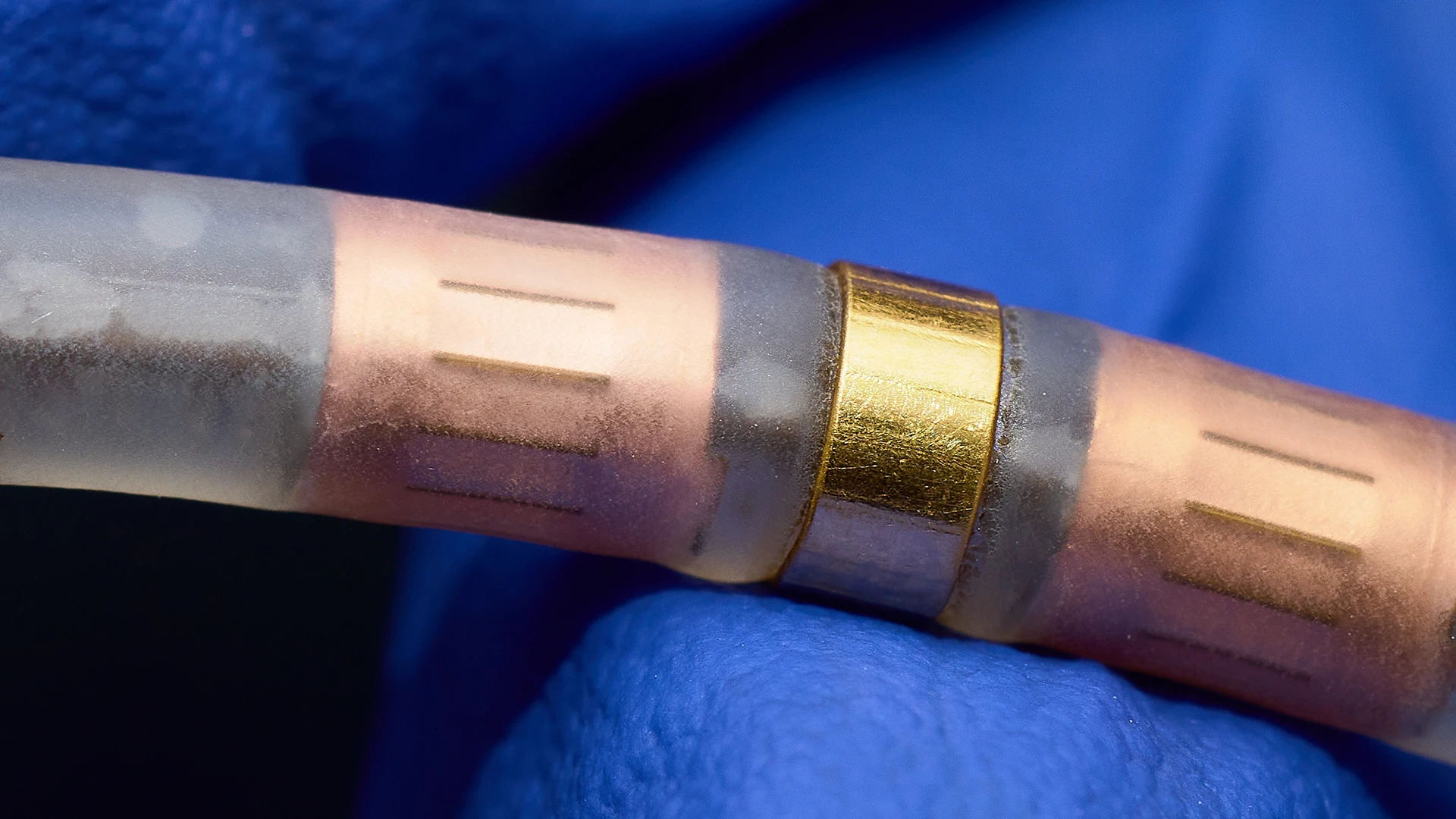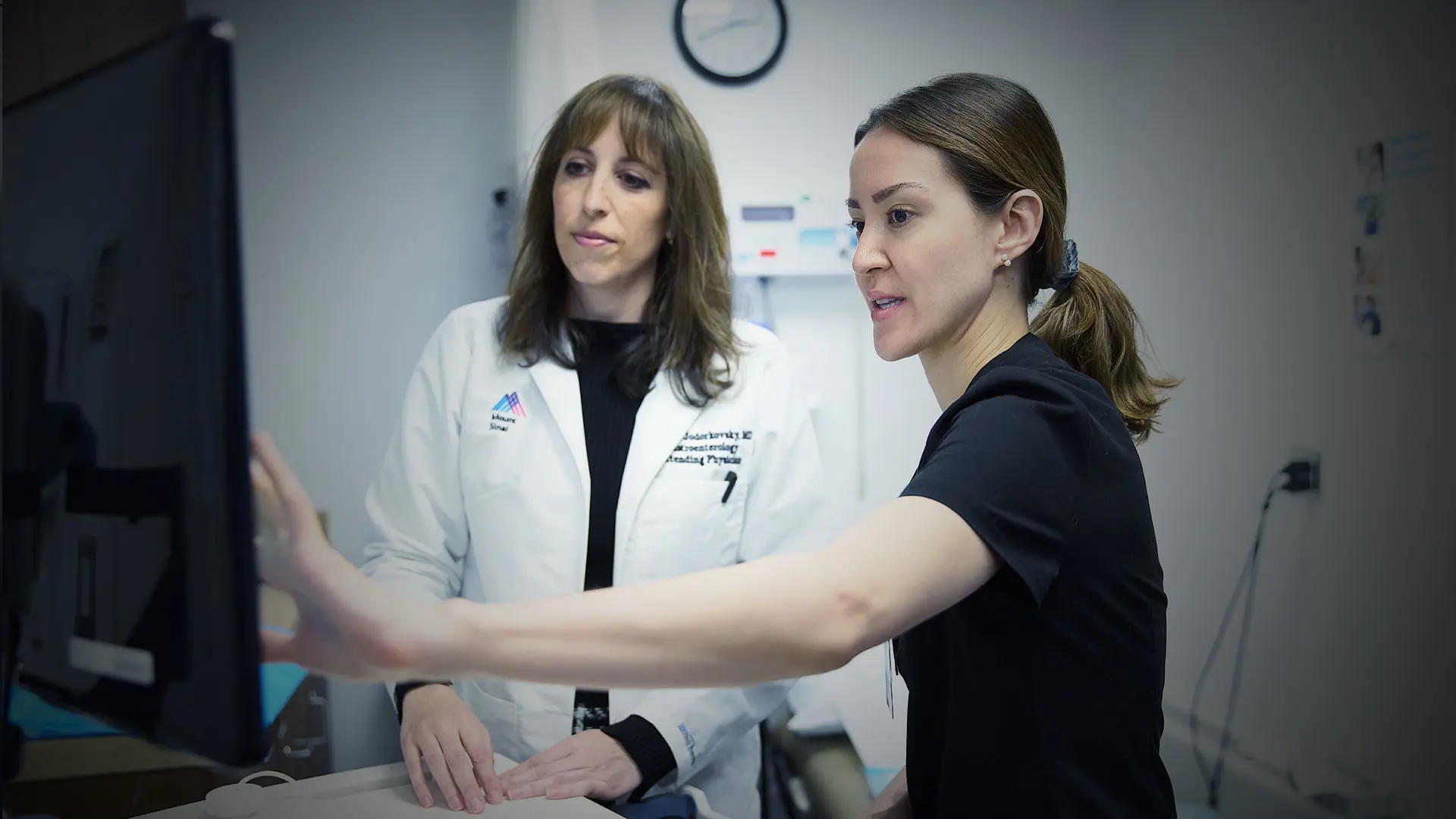At the recent annual conference of the American College of Gastroenterology, eight abstracts were accepted and presented before a national audience of specialists. All eight originated from the Mount Sinai Center for Gastrointestinal Physiology and Motility, the largest center of its type in New York City and one of a handful in the country offering advanced diagnostics and treatment for patients with often-complex motility disorders.
The Center’s expertise, advanced technology, and reputation consistently draw referrals from gastroenterologists throughout the region for patients with conditions affecting the intestinal tract, from common ones such as gastroesophageal reflux disease and dysphagia to rare ones such as achalasia, gastroparesis, and chronic intestinal pseudo-obstruction. Located across from the Mount Sinai West hospital campus on Manhattan’s West Side, the highly specialized Center continues to grow to meet the clinical demand. It has added five faculty members over the past two years and recruited as its director a nationally known expert in the field.
“Motility disorders can be challenging because of their complex and often elusive pathophysiology, which may require a more specialized level of diagnostic testing and treatment than most general gastroenterologists are typically trained for,” says Daniela Jodorkovsky, MD, named as director of the Mount Sinai Center for Gastrointestinal Physiology and Motility in October 2022. She is an Associate Professor of Medicine (Gastroenterology) at the Icahn School of Medicine at Mount Sinai. “That’s where our Center fits in, providing direct access to diagnostic testing and analysis of results for gastroenterologists who refer their cases to us, and also managing patients in our own offices.”

Daniela Jodorkovsky, MD, leads one of the nation's most advanced centers for motility disorder research and treatment. She is a nationally known expert in the field.
That testing and analysis draw on sophisticated equipment and techniques in the Center’s lab and endoscopy suite. For esophageal disorders, that capability includes high-resolution esophageal manometry, 24-hour pH-impedance testing, an endoluminal functional lumen imaging probe, and ambulatory wireless pH studies. Gastric and small bowel testing may employ wireless motility capsules swallowed by the patient to record temperature, gastrointestinal pressure, and pH to help diagnose conditions such as gastroparesis and small bowel dysmotility. Colonic and pelvic floor testing may use high-resolution anorectal manometry and balloon expulsion using a thin catheter with special sensors, as well as wireless motility capsules.
Treatments are just as advanced and comprehensive, covering both upper and lower GI motility disorders. Endoscopic therapies, for example, include esophageal dilation, pneumatic balloon dilation, and peroral endoscopic myotomy (POEM), while minimally invasive procedures range from fundoplication and magnetic sphincter augmentation to Roux-en-Y gastric bypass and sleeve gastrectomy.
“One of our center’s strengths is the multidisciplinary care and management we provide by working closely with other surgical specialists such as thoracic, bariatric, general, and colorectal,” notes Dr. Jodorkovsky. “We also get referrals from medical specialists such as rheumatology, pulmonary, and endocrinology for patients with systemic disorders that affect motility.”
Indeed, the Motility Center takes no greater pride than in the comprehensiveness of its clinical platform. Through a program known as Motility INterdisciplinary Team management (MINT), the most complex patients are seen in rotation by all five physicians at the Center, each a motility specialist with expertise in a related gastrointestinal field. “MINT ensures that each patient is seen frequently enough for follow-up to help reduce hospitalization and improve quality of life,” explains Dr. Jodorkovsky, “and that each visit brings new ideas with a fresh set of eyes. At our monthly meeting, we discuss these patients’ management plans.”

An esophageal manometry procedure yields a color topography plot that allows Dr. Jodorkovsky and her staff to examine the peristalsis patterns of a patient's swallow.

The Motility Center uses high-resolution manometry catheters to diagnose different types of motility disorders.
Caring for patients in an interdisciplinary mode is a critical part of the Center’s growth plans. It has added a dietitian to its staff and plans to hire a GI psychologist to perform psychological assessment of potentially contributing factors to symptom modulation, such as anxiety and depression, and to provide evidence-based treatments such as cognitive behavioral therapy and hypnotherapy. These approaches are getting increasing attention as scientists start to understand the class of GI illnesses known as disorders of gut-brain interaction. In addition, Dr. Jodorkovsky, who trained in esophageal and motility disorders at The Johns Hopkins Hospital, is developing a research program with the ability to conduct clinical trials. To that end, the Center recently hired a faculty member to serve as Director of Research.
Education and training are also vital platforms for growth. Gastroenterology fellows currently rotate at the Center to learn about specialized diagnostic testing, as well as care management by seeing patients in the motility practice. Plans call for a yearlong postgraduate motility fellowship for those who have decided to specialize in the field.
The opportunity to put her leadership talents behind developing a uniquely equipped motility center is what brought Dr. Jodorkovsky, previously director of motility and gastroenterology fellowship director at NewYork-Presbyterian/Columbia University Irving Medical Center, to Mount Sinai.
“It was clear there was enormous support from the administration for a motility center of excellence,” she says, “and I’m now working with some of the brightest minds in the field to advance its clinical and educational mission with the goal of making it an international leader in the space.”
Featured

Daniela Jodorkovsky, MD
Associate Professor of Medicine (Gastroenterology)
